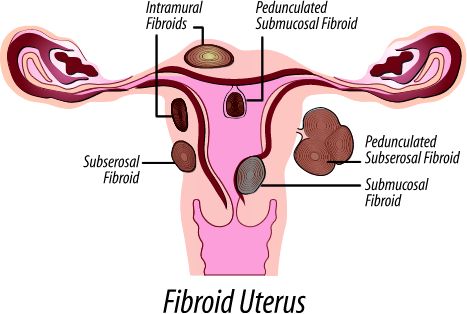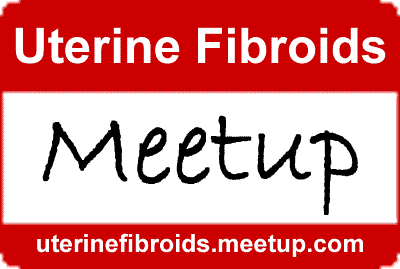 |
 |
 |
 |
 |
 |
 |

|
PO
Box 9688 |
|
Colorado
Springs, CO 80932-0688 |
|
719.633.3454 |
|
|
|
. |
| |
|
About
Uterine Fibroids |
|
Uterine
Fibroids |
| Risk Factors |
| Statistics |
|
. |
|
. |
 |
|
|
Uterine Fibroids
Uterine fibroids (leiomyomas) are common noncancerous (benign) tumors of the uterus. They grow from the muscular wall of the uterus and are made up of muscle and fibrous tissue.

In some women, uterine fibroids may cause heavy bleeding, pelvic discomfort and pain and create pressure on other organs. These symptoms may require treatment, but not always a hysterectomy.
It is important to note that symptoms like pelvic pain or unusual bleeding may not necessarily be related to the uterus or fibroids. An accurate diagnosis through the use of trans-vaginal ultrasound, magnetic resolution imaging (MRI), and endometrial biopsy is important in helping you to determine the cause of your symptoms.
Diagnosing the cause of symptoms and attempting to treat those symptoms prior to Treating the Fibroids through other, more invasive means, is a critical step in the overall medical process of managing your uterine fibroid condition.
Abnormal bleeding is the primary uterine fibroids symptom most often requiring treatment. Submucosal fibroids cause the majority of bleeding in women with fibroids. Because of their location on the endometrium, submucosal fibroids place pressure on the uterine lining that builds with each menstrual cycle. This, in turn, can cause abnormal bleeding.
Pelvic pressure from the size of a growing fibroid uterus, regardless of the type(s) of fibroids present, can also bring on abnormal bleeding.
There are numerous ways that abnormal bleeding may be treated:
-
NonSteroidal Anti-Inflammatory Drugs (NSAIDs, e.g., Ibuprofen)
-
Vitamin and/or herbal remedies
-
Dilation and Currettage (D&C)
-
Hormonal therapy (e.g., birth control pills)
Depending upon the individual, any one of these solutions may bring some relief from the symptoms experienced as a result of uterine fibroids. When symptoms are resolved most women feel 'cured' and find no need to take additional action with their uterine fibroids.
Excessive bleeding can also cause anemia. Anemia occurs when there is a decrease in your red blood cells due to blood loss. If anemia is confirmed through a blood test, taking iron supplementation may help.
Constipation and hemorrhoids are additional symptoms caused by the pressure of growing fibroids. (Constipation can also be a side effect of taking iron supplementation for anemia.) Eating more whole grains, bran, and fruit and drinking lots of water may help alleviate constipation. Natural laxative products may also help.
Donate | Copyright Information ©2000-2010 | Contact NUFF
This page last updated Sunday, November 21, 2010

